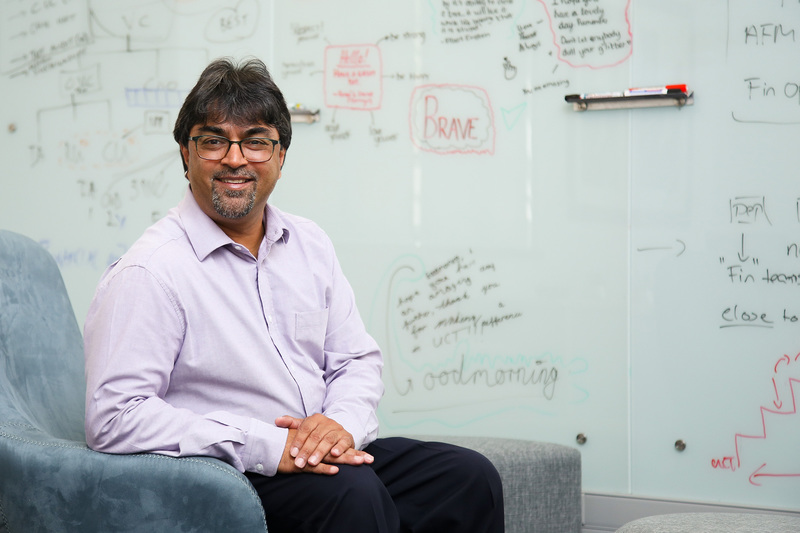UCT continues to respond to loadshedding challenge
24 April 2023 | Dr Reno Morar
Dear colleagues and students
Loadshedding is a national crisis and universities are affected too. Power outages create an unpredictable and additional stressful environment for students and staff in an already pressurised academic environment.
The University of Cape Town (UCT) management acknowledges this and, although this is an external challenge, we recognise fully the negative impact constant power cuts have on the UCT community. We continue to work tirelessly to minimise the impact of loadshedding on campus.
I would like to bring you up to speed on work that has been undertaken to minimise power supply disruptions, in particular the escalation to stage 6.
Noting that our June exams are scheduled to start late next month, work is already underway to ensure that there are mitigation measures against the impact of loadshedding, in particular during the period.
We will share a bit more detailed update via a campus announcement in the next few days.
Current measures in place
A number of measures have already been put in place to ensure that our teaching, learning and research activities continue with as minimal interruption as possible under the circumstances. Further to these, significant work is underway to keep key UCT sites connected during loadshedding.
UCT has a number of buildings that have redundant power supplies (ie will have powered network points during loadshedding). Two UCT residences have UPS and generators set up. Some residences are on the Groote Schuur Hospital grid and are therefore exempt from loadshedding.
Back-up plans
The university also has a list of centrally bookable venues with backup power details as well as a list of UCT venues with back-up power-generation capacity. Where this is feasible, as not all our buildings are suitable, we are also creating additional study spaces across campus that will be protected from loadshedding.
However, it should be noted that during higher stages beyond stage 4, the capacity to provide back-up power is hindered as the UPS do not get sufficient time to charge between stages.
For students who need to access information outside of the UCT Wi-Fi network, a number of sites have been zero-rated as a result of an agreement reached with cellphone providers (ie students do not need data to access the sites).
Strategic energy projects
While the university has several strategic energy projects in the pipeline, the costs of these must now be considered against the current backdrop of severe budget constraints. In response, we are seeking alternative funding models for the R148 million that we require to fund our energy management plans.
For example, a new permanent generator installation comes at a once-off cost of approximately R2 million, while temporary generators cost R60 000 to R80 000 per month to hire. Approximately 40 generators are already in place on UCT campuses. Fuel costs for these are in the region of R6 million per year.
Solar power
Solar power is naturally being considered in our energy mix and in support of UCT’s environmental sustainability strategy. This is targeting a net zero carbon campus by 2050. In this regard, UCT plans to use solar and gas energy to supplement the grid. We have made progress with Phase I of our solar photovoltaic (PV) roll-out plan.
Immediate and longer term action plan
Given the urgency loadshedding demands, UCT has set out an action plan for both the immediate and long term.
- Firstly, we are working with the Development and Alumni Department (DAD) to raise funds for additional generators and inverters through alternative funding sources.
- We will continue to install inverters and generators that have been funded.
- Lastly, we will continue with the long-term solution of an energy management system to ensure full energy redundancy for UCT.
While the university will do everything possible to mitigate the effects of loadshedding, the national energy situation remains unpredictable. The repercussions place an additional burden on our students and staff who have only recently returned to our campuses following the COVID-19 pandemic restrictions. Thank you for your resilience.
In these challenging times, I encourage you to reach out for support when needed. Students should approach Student Wellness Services for assistance and staff should seek help through the Human Resources Department.
Sincerely
Dr Reno Morar
Chief Operating Officer
Read previous communications:
Updated: 11 September 2025
 This work is licensed under a Creative Commons Attribution-NoDerivatives 4.0 International License.
This work is licensed under a Creative Commons Attribution-NoDerivatives 4.0 International License.
Please view the republishing articles page for more information.








